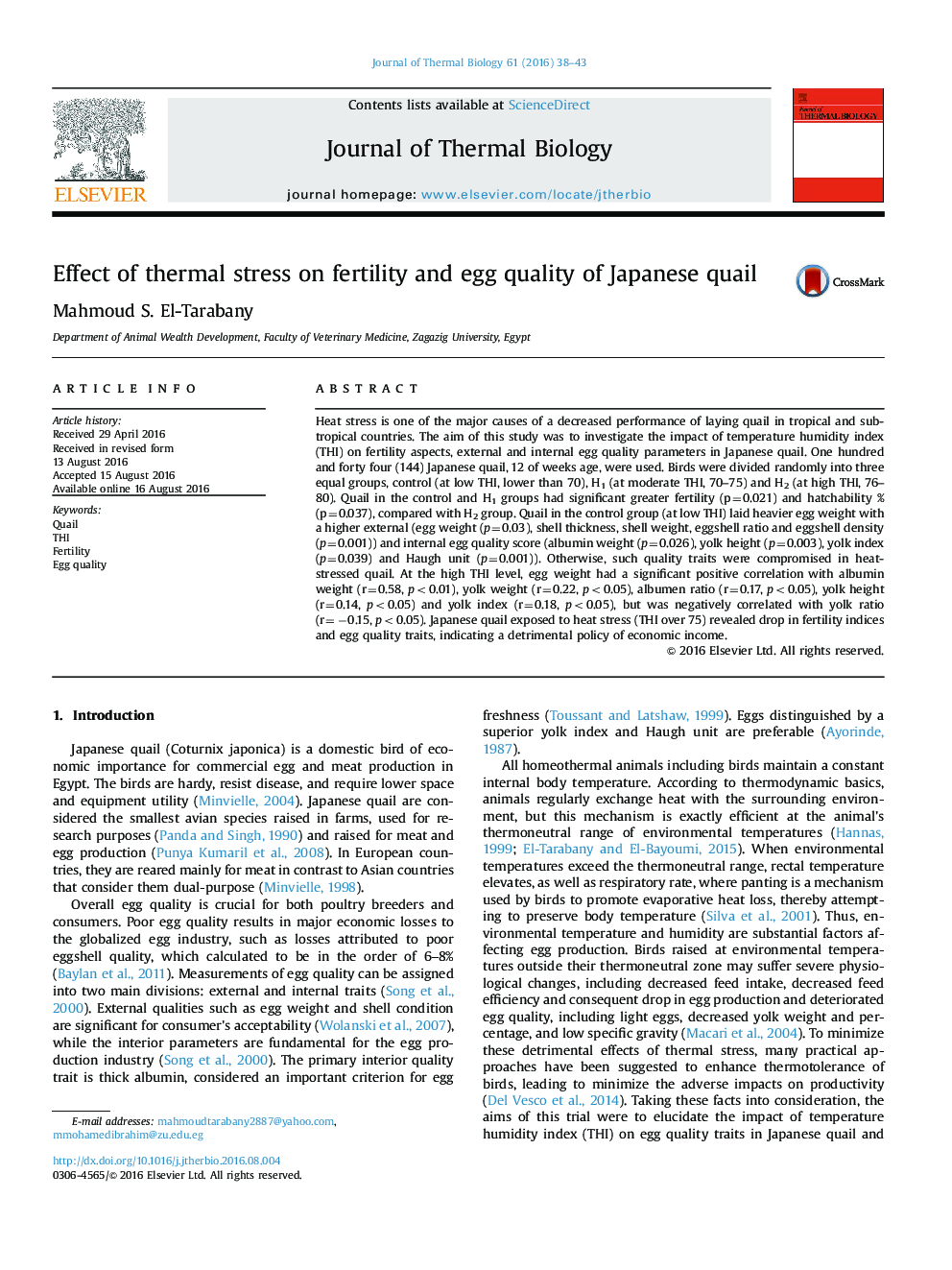| کد مقاله | کد نشریه | سال انتشار | مقاله انگلیسی | نسخه تمام متن |
|---|---|---|---|---|
| 2842642 | 1571085 | 2016 | 6 صفحه PDF | دانلود رایگان |
• This study evaluates the effect of different THI levels on fertility indices in Quail.
• The current work investigates the effect of different THI levels on external and internal egg quality in Quail.
• Correlation coefficients have been estimated among external and internal egg quality parameters.
Heat stress is one of the major causes of a decreased performance of laying quail in tropical and subtropical countries. The aim of this study was to investigate the impact of temperature humidity index (THI) on fertility aspects, external and internal egg quality parameters in Japanese quail. One hundred and forty four (144) Japanese quail, 12 of weeks age, were used. Birds were divided randomly into three equal groups, control (at low THI, lower than 70), H1 (at moderate THI, 70–75) and H2 (at high THI, 76–80). Quail in the control and H1 groups had significant greater fertility (p=0.021) and hatchability % (p=0.037), compared with H2 group. Quail in the control group (at low THI) laid heavier egg weight with a higher external (egg weight (p=0.03), shell thickness, shell weight, eggshell ratio and eggshell density (p=0.001)) and internal egg quality score (albumin weight (p=0.026), yolk height (p=0.003), yolk index (p=0.039) and Haugh unit (p=0.001)). Otherwise, such quality traits were compromised in heat-stressed quail. At the high THI level, egg weight had a significant positive correlation with albumin weight (r=0.58, p<0.01), yolk weight (r=0.22, p<0.05), albumen ratio (r=0.17, p<0.05), yolk height (r=0.14, p<0.05) and yolk index (r=0.18, p<0.05), but was negatively correlated with yolk ratio (r=−0.15, p<0.05). Japanese quail exposed to heat stress (THI over 75) revealed drop in fertility indices and egg quality traits, indicating a detrimental policy of economic income.
Journal: Journal of Thermal Biology - Volume 61, October 2016, Pages 38–43
